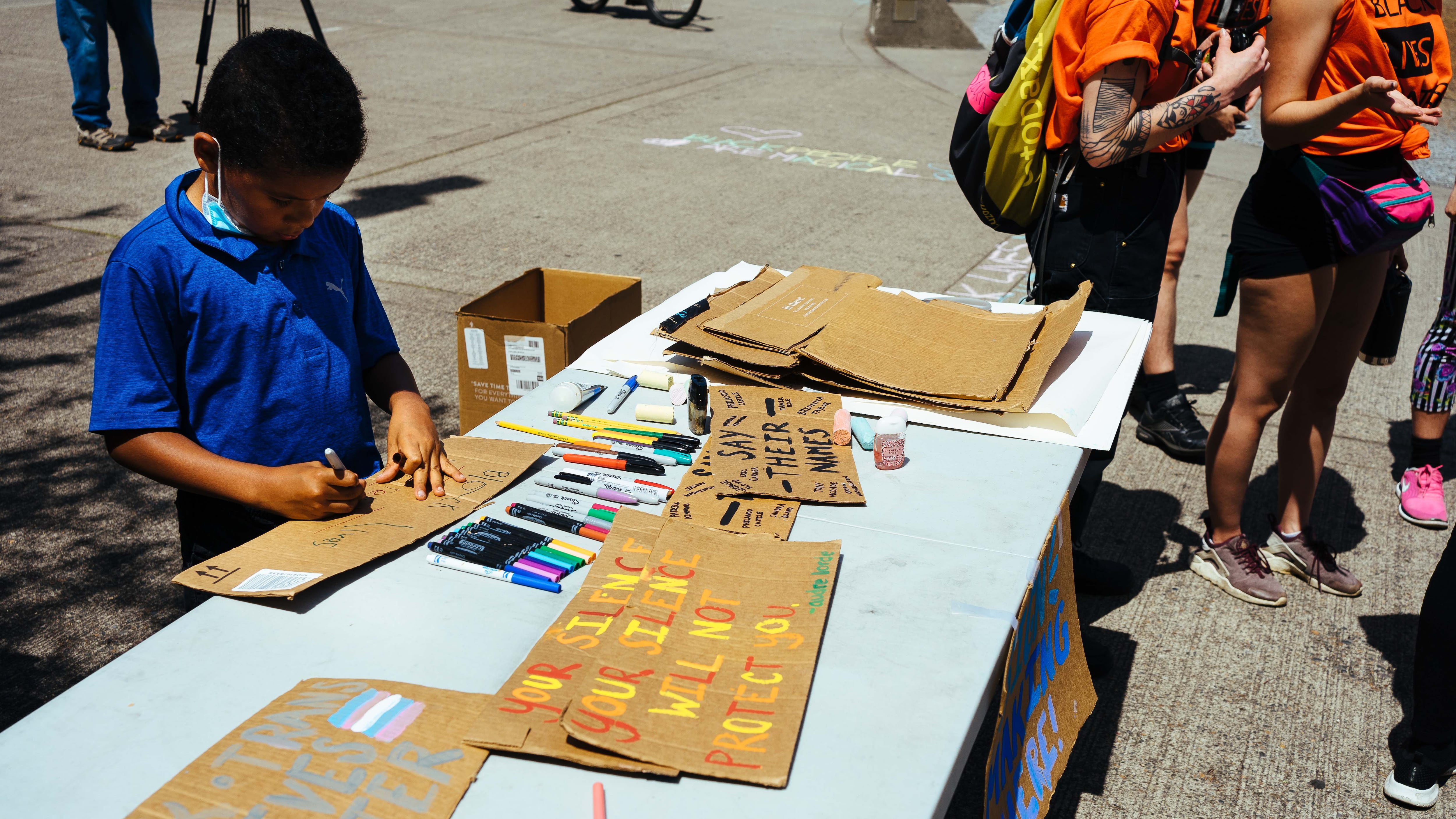Life in Portland for Black and white people is overwhelmingly different. In the coming weeks, WW will explore these contrasting realities—the inequities that have molded the Black experience in this city and state. This week, we look at education.
An Oregon Department of Education report reveals deep disparities in public school performance rates in Portland, with white children greatly outperforming their peers in school subjects.
Achievement gaps are prominent throughout Oregon but far worse in Portland. The biggest gap is between white and Black students.
A 2019 state audit of Portland Public Schools found a 53 percentage point achievement gap, for example, between the district's white and Black students in language arts.
The report shows only 21% of Black students met or exceeded grade-level standards on the 2017-18 English Language Arts achievement test compared to 74% of white students.
The achievement level differences for math are even steeper. Only 11% of Black students met the standards for math compared to 60% of white students.
The lack of teacher representation and discriminatory policies are partly to blame, states a 2010 report by the Multnomah County Coalition of Communities of Color. Students have demanded change over and over, but too often their social status determines the quality of their education and their access to resources.
"Substantial gaps also remain based on economic status, language fluency, race, and disability status," the audit report states.
As WW previously reported in this series, poverty rates are the highest for Black Portlanders compared to other demographics. When children live in poverty, daily worries become more focused on survival, and education may not be their primary concern. This is one of the ways they get pushed steps behind their more affluent peers.
This reporting has been funded in part by a grant from the Jackson Foundation. See more Black and White in Oregon stories here.

